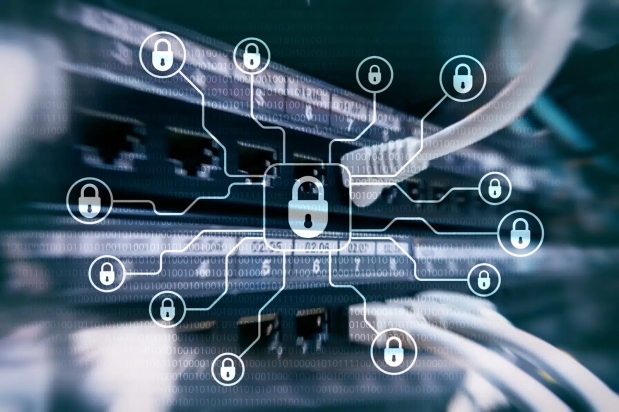Whether your network is under a cybercrime investigation or not, it’s important to take the time to properly assess the management of your network. At a base level, this is done by reviewing the network diagrams to see if it’s current and accurately reflects the network layout and interconnections. It also includes reviewing the configuration of computers, and how they’re connected to the network, how and where servers are installed, configured and maintained, and how Wi-Fi is deployed and configured. In this article, our team of IT professionals in NJ will go over in more detail how to assess the management of your corporate network.
Review Network Diagrams
Network diagrams are critical in assisting IT technicians during network outages, emergencies, and disasters. These diagrams also keep IT staff updated on the size, growth and location of the network. Non-existent or inaccurate network diagrams can cause technicians to miss critical portions of their IT infrastructure, especially when new devices are implemented. Proper documentation for network diagrams should include the layout of the entire network, location of all devices, identification of all the VLANs, and IP address schemes across the entire infrastructure. It should also list the Internet providers names, IP address configurations for external networks, and or contact information, so your IT team can quickly contact the telecom providers and technical support team when needed.
Server and WiFi Configuration and Use
It’s essential to review the installation, configuration and maintenance of the computers and installed software products. How IT technicians deploy and use their computers can tell you a lot about the management of your network. If wires are strewn along the floor and not wired through walls; if virus mitigation is not installed or kept updated; if operating system updates are not performed on a specific schedule; these might be indications that their work ethic, confidence and professionalism are lacking. When we see computers deployed with no regard for their configuration on the network, it’s often a sign of inadequate security knowledge or diligence. Remember, computers and end users are often the initial targets of ransomware or network intrusions because they are the weak links!
On top of server management, it’s also important to check if there are any Wi-Fi devices installed and configured on the network. These devices are often used to extend the network to locations in a building that are difficult or impossible to wire. It’s often used to provide guests with free Wi-Fi, but how the Wi-Fi is deployed needs to be reviewed. In short, corporate Wi-Fi must be on the inside corporate network, locked down with strong encryption, and protected with a complex password. The free public Wi-Fi, on the other hand, must be on its own external network or VLAN and not deployed on your internal network. If the public Wi-Fi is deployed on the internal portion of your corporate network, which we see many times, this would allow hackers to sit outside your building, access the public Wi-Fi and gain access to the internal, sensitive parts of your company network, bypassing the firewall.
Properly Manage Your Corporate Network with Competent IT Support in NJ
Reviewing all these areas can provide an overview of how your network is deployed, secured, and managed. Without proper documentation to rely on, an IT team cannot react appropriately and timely to network delays, outages, and other serious cybersecurity issues like a hacker trying to dismantle your business! If you need a thorough assessment of how your network is managed, and to perhaps create new documentation to ensure everyone is using their corporate devices appropriately, please give Network Security Group a call today. Our IT support team can review and make expert recommendations to your current network diagrams or create brand new documentation that ensures your company network is operating efficiently and safely.
To learn more about our managed IT services for corporate businesses in NJ, please visit us at:
*This article includes excerpts from “Pocket Guide for Investigating Ransomware and Network Intrusions” written by John Lucich, the Founder and CEO of Network Security Group, Inc and eForensix.
This blog was originally published at https://www.nsgi.com/is-your-corporate-network-being-properly-managed/


